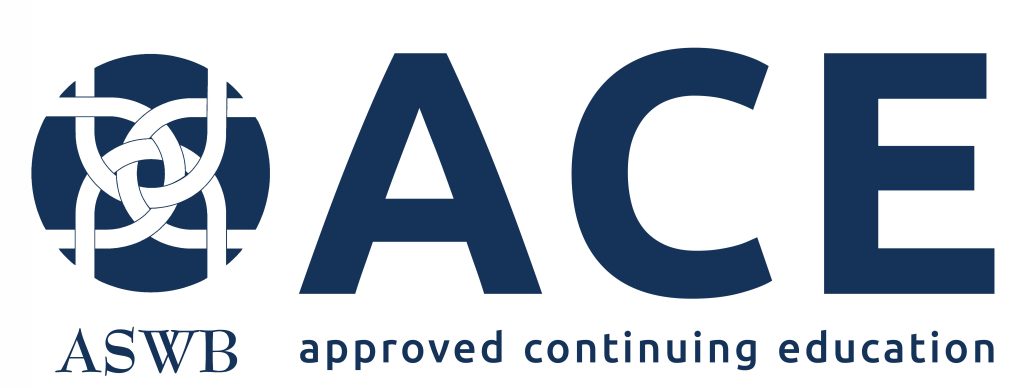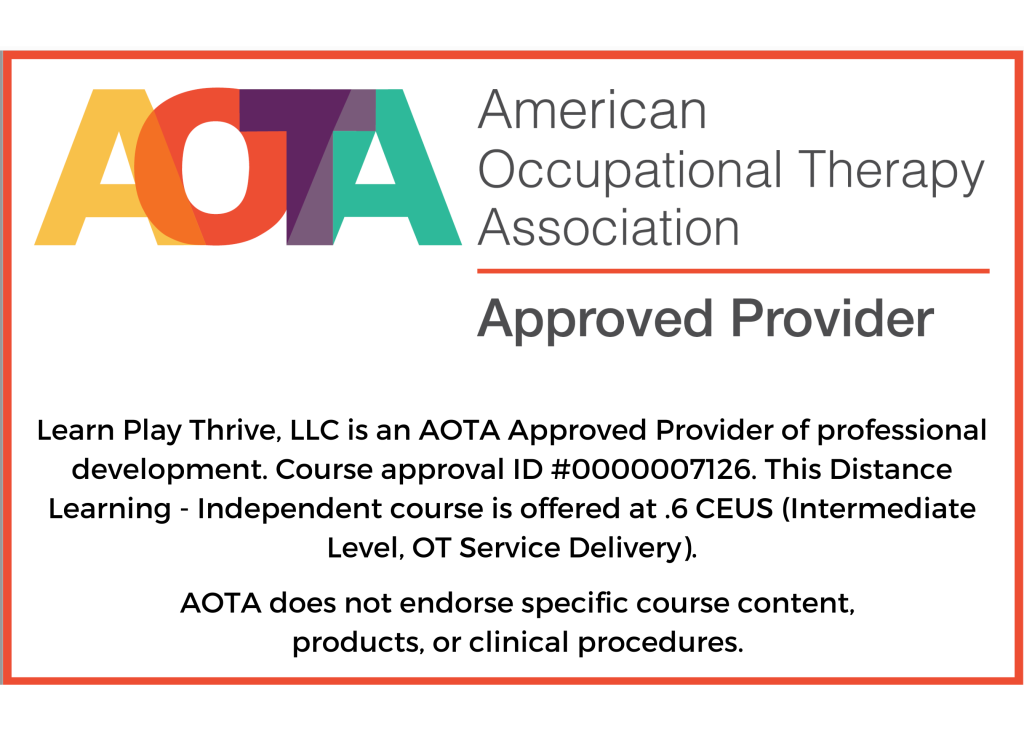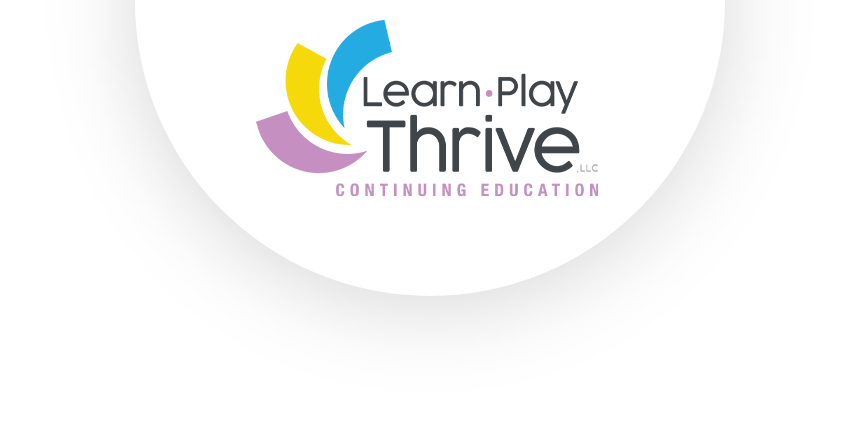The Learn Play Thrive
Approach to Autism
Without training in strengths-based supports for your Autistic clients, you can feel ineffective and discouraged in your work. In this 6 contact hour, self-paced course, you’ll learn concrete skills you need to be confident that your work is making the greatest possible impact. This course is registered for .6 AOTA CEUs (6 contact hours), .6 ASHA CEUs, and 6.0 ASWB ACE credits.



Together we will
transform your practice
MODULE 1: A Strengths-Based Approach to Supporting Autistic Kids
Never again write generic interventions that just don’t work. First, you’ll go deep into autism learning styles based on the latest research. This will help you move past outdated, deficits-based ideas about autism, and feel confident in your expertise. Then, with this foundation, you’ll learn a concrete process that will allow you to generate relevant, effective, and strengths-based interventions every time.
MODULE 2: Therapy Process
Get past feeling “stuck” and not knowing where to start with helping your clients meet their goals. Learn how to use informal assessment, individualized structure, visual instructions, and evidence-based teaching strategies to guide your therapy process from assessment through goal mastery and generalization. We’ll also dive into how to build in supports based on your clients’ preferred social play level and how to support their learning using play materials, without asking them to play less Autistically.
MODULE 3: Making Schedules
Stop wasting your limited time making schedules that your clients don’t understand or use. You’ll learn how to create truly individualized schedules that will reduce transition battles and support your Autistic clients even when schedules unexpectedly change.
MODULE 4: Visual To-Do Lists & Self-Care Skills
Move beyond giving constant redirections and reminders that leave you feeling ineffective and make your clients frustrated and confused. You’ll master a method for creating visual to-do lists that even your most concrete (or youngest) clients will understand. These visual to-do lists will keep your kids at the table for learning, increase independence in self-care skills, and provide new opportunities for authentic engagement in daily routines.
MODULE 5: Community Integration
Get past your fears of moving your intervention to the community, where real life happens! Learn exactly how to bring it all together and help your clients succeed out in the community with a series of case studies from early intervention through adolescence.
Watch the free masterclass and get
one year access to the course
Fill out the form to watch the free masterclass, 4 Essential Steps Towards a Strength-Based Approach to Autism! You’ll also get a one-time chance to enroll in the Learn Play Thrive Approach to Autism full course with one year’s access (regular is six months).
Join our email list and watch the free masterclass.

This course is
actionable and concrete.
You’ll learn how to confidently help your clients meet their goals without ever using rewards or other compliance-based strategies in your practice. It’s all about understanding how Autistic* people think and learn and shaping our interventions to reflect respect for their strengths and how they think and learn.
You’ll develop intervention plans you can apply in your practice right away.
*identity-first language used as it’s the preference of the autistic community

Investment
$339 for over 6 recorded hours packed full of actionable content. We also offer payment breakdown to 3 payments of $113.

Access
This course is entirely self-paced. Once you register, you’ll have access for 6 months to complete on your own time.

Continuing Education
This course is registered for .6 AOTA CEUs (6 contact hours), .6 ASHA CEUs, and 6.0 ASWB ACE credits.

FAQs
Information about completion requirements, accommodations, and more can be found in the FAQs.
The Learn Play Thrive Approach to Autism is
for you if…
You currently work with neurodivergent clients on functional daily skills
You feel bored and ineffective using the same interventions over and over again
You feel guilty sending the kids back to class or back home knowing that you weren’t as effective as you could have been
- You currently work with neurodivergent clients on functional daily skills
- You feel bored and ineffective using the same interventions over and over again
- You feel guilty sending the kids back to class or back home knowing that you weren’t as effective as you could have been
You want to feel confident in shaping your interventions based on Autistic strengths
You are ready to let go of compliance-based approaches like withholding interests, hand-over-hand, and using reinforcers
- You want to feel confident in shaping your interventions based on autistic strengths
- You are ready to let go of compliance-based approaches like withholding interests, hand-over-hand, and using reinforcers


















Meet your
Instructors
Meg Ferrell (Proctor)

Meg Ferrell (Proctor)
M.S., OTR/L
Meg has worked in early intervention, schools, and clinics. She is a former faculty member of the TEACCH® Autism program, and she is the host of the Two Sides of the Spectrum Podcast, where she interviews Autistic adults and other professionals striving to change therapy practice.
She is the primary instructor in The Learn Play Thrive Approach to Autism, where she fills up the toolboxes of OTs, SLPs, social workers, school psychologists, and other professionals with strengths-based strategies to use in their work. Meg also teaches Module 1 of the LPT Approach to Autism as a stand-alone live course, A Strengths-Based Approach to Supporting Autistic Kids
FINANCIAL: Meg is the owner of Learn Play Thrive and receives a salary.
NON-FINANCIAL: Meg has friends and colleagues who are autistic.
Rachel Dorsey

Rachel Dorsey
M.S., CCC-SLP
Rachel holds a Master of Science in Communication Sciences and Disorders from the University of Wisconsin-Madison and has worked in school, clinic, and community-based settings with children and adolescents of all ages.
FINANCIAL: Rachel is the owner of Rachel Dorsey: Autistic SLP, LLC and receives a salary. She is paid a consulting fee by Learn Play Thrive as the SLP consultant. Rachel was paid a speaking fee for her contribution to The Learn Play Thrive Approach to Autism. Rachel receives commission from her course, Goal Writing for Autistic Students and Let’s UNMASC. Rachel is a paid consultant for Responsive Feeding Pro, LLC. Rachel receives commission from Learn Play Thrive for sales of the Neurodiversity Summit.
NON-FINANCIAL: Rachel is Autistic and has friends and family members who are Autistic.
Sarah Selvaggi-Hernandez

Sarah Selvaggi-Hernandez
MOT, OTR/L
Sarah’s previous professional experience includes: assistant professor of Pediatrics and Mental Health at Bay Path University, early intervention therapist in Springfield, MA, and occupational therapist at a psychiatric residential treatment facility in East Windsor, CT. She now works as a full-time Autistic advocate and sensory consultant. Sarah and her husband Jeremy also served as a therapeutic foster family for the State of Connecticut for nearly twenty years, and continue to provide therapeutic respite care for Autistic children. Sarah can be found happy-flapping with her family in Enfield, CT.
FINANCIAL: Sarah was paid a speaking fee for her contribution to the LPT Approach to Autism. She receives commission for the sales of Ethics & Neurodiversity: Let’s Talk Sex. Sarah is the author of a book, Melt Like Ice Cream, for which she receives royalties. She is also owner of Living Sensory Wellness, Inc. and receives compensation for consultation services.
NON-FINANCIAL: Sarah is autistic and has friends and family members who are autistic. Sarah is an unpaid advisory board member for NeuroClastic, Inc. and Disability Rights Connecticut.
Please note: disclosure statements are contained in the Bio page for each speaker. Click on "READ BIO" above to review the disclosures.

I feel confident that it will change your practice.
– Meg Ferrell, Founder of Learn Play Thrive
Full Course Objectives
MODULE 1: A Strengths-Based Approach to Supporting Autistic Kids
1 hour 37 minutes
Learn how to confidently and clearly understand behaviors and plan interventions based on clients’ strengths.
Critique traditional models of behavior problem solving using the framework of the Double Empathy Problem and research on the mental health outcomes of masking
Develop six or more specific hypotheses about how a child's difficulty participating in a learning activity or routine may be related to Autistic learning styles
Generate six or more intervention strategies to teach new skills and adapt the learning environment based on a specific client’s strengths
- Critique traditional models of behavior problem solving using the framework of the Double Empathy Problem and research on the mental health outcomes of masking
- Generate six or more intervention strategies to teach new skills and adapt the learning environment based on a specific client’s strengths
- Generate six or more intervention strategies to teach new skills and adapt the learning environment based on a specific client’s strengths
MODULE 2: The Process of Autism-Specific Therapy
2 hours 36 minutes
Get un-stuck and become more effective in your therapy process.
Analyze a child’s learning needs using a process of informal assessment
Analyze client’s learning style and utilize this understanding to plan meaningful learning activities and visual instructions
Apply two or more teaching strategies that promote flexibility and generalizing for clients after task is mastered
- Analyze a child’s learning needs using a process of informal assessment
- Analyze client’s learning style and utilize this understanding to plan meaningful learning activities and visual instructions
- Apply two or more teaching strategies that promote flexibility and generalizing for clients after task is mastered
MODULE 3: Making Schedules
40 minutes
Stop wasting time making schedules that just don’t work.
Apply the interpreting behaviors process and an understanding of Autistic learning styles to identify three reasons why transitions may be hard for your Autistic clients
Analyze a client’s learning style to determine what type of schedule (object, photograph, symbolic picture, picture & word, or written) will be most meaningful to them
Plan a schedule for a client, including instructions at the appropriate level (object, photograph, symbolic picture, picture & word, or written) , a method for the child to use the schedule (take and use, take and match, mark off, move to finished), and at least two concrete ways that the schedule can support a child in adapting to change
- Apply the interpreting behaviors process and an understanding of Autistic learning styles to identify three reasons why transitions may be hard for your Autistic clients
- Analyze a client’s learning style to determine what type of schedule (object, photograph, symbolic picture, picture & word, or written) will be most meaningful to them
- Plan a schedule for a client, including instructions at the appropriate level (object, photograph, symbolic picture, picture & word, or written) , a method for the child to use the schedule (take and use, take and match, mark off, move to finished), and at least two concrete ways that the schedule can support a child in adapting to change
MODULE 4: Creating Visual To-Do Lists for Table Activities & Daily Living Skills
48 minutes
Get your kids’ engagement so that you can confidently teach.
Apply the interpreting behaviors process and an understanding of Autistic learning styles to identify three reasons why Autistic kids may have difficulty with adult-directed activities
Generate an individualized visual to-do list for table-top learning and for self-care routines
Create a plan for teaching using to-do lists that incorporates two or more strategies to promote flexibility and generalizing
- Apply the interpreting behaviors process and an understanding of Autistic learning styles to identify three reasons why Autistic kids may have difficulty with adult-directed activities
- Generate an individualized visual to-do list for table-top learning and for self-care routines
- Create a plan for teaching using to-do lists that incorporates two or more strategies to promote flexibility and generalizing
MODULE 5: Community Integration
25 minutes
Ditch your fears of taking intervention out into the real world.
Synthesize and apply your knowledge of strengths-based approaches to create effective support plans for Autistic clients going out into the community
- Synthesize and apply your knowledge of strengths-based approaches to create effective support plans for Autistic clients going out into the community
Frequently Asked Questions
In each module I help you tailor the interventions to your client’s age and developmental level. This course is appropriate for professional working with kids from early intervention through adolescence.
Each module includes lectures, slides, videos, and case studies.
Yes! The course is self-paced and you have six months to complete it on your own time.
Yes! If 3 or more people from your company plan to enroll email me the names of everyone enrolling at admin@learnplaythrive.com and I’ll provide a coupon code. It’s 15% for 3 registrants, 20% off for 4 or more, and 30% off for 7 or more.
Learners must complete all modules and pass all five quizzes with 75% accuracy. Multiple retakes are allowed. When the final survey is completed and the course reaches 100% completion the certificate will be issued.
Full refunds are provided within 30 days of purchase if no more than 3 modules have been completed. Email admin@learnplaythrive.com to request a refund. Since this is a self-paced course, there is no option to cancel once the 30 day / 3 module limit has been exceeded. If for any reason the course is canceled by the provider before your registration period has expired, you will receive a full refund.
All videos used in this presentation have closed captions. If you need additional accommodation, please email admin@learnplaythrive.com prior to your training date. Accommodations will be made to support all learners in compliance with the Americans with Disability Act.
You can send an email to admin@learnplaythrive.com
Our courses are hosted on Thinkific. You will need one of the two latest versions of a supported browser to access the course. (Note: Internet Explorer is not supported).
Desktop:
Chrome
Firefox
Safari
Microsoft Edge
Mobile:
iOS Safari
Chrome
Samsung Internet
In order to ensure that Thinkific runs well, you will need:
The most recent version of one of the web browsers listed above
Javascript enabled
PDF plugin
Graphic and audio output capability
Broadband internet connection with a minimum speed of 5Mbps (recommended)
TLS 1.2 supported by your web browser
This information was adapted from: https://support.thinkific.com/hc/en-us/articles/360030354954-System-Requirements-and-Supported-Browsers
The LPT Approach is more than just a course.
Group Discounts
We are happy to offer a discount for your group! Email your list of participants to admin@learnplaythrive.com to receive a coupon code.
• 3 participants: 15% off
• 4+ participants: 20% off
• 7+ participants: 30% off
• 50+ participants: please inquire
Parent / Teacher Handouts
Understanding the content is one thing but supporting your parents and teachers can be a whole different job! I’ve got you there too. Now when you enroll you’ll get a digital catalog of handouts to explain the most important topics to your clients’ caregivers.
30 Day Money Back Guarantee
We think you’ll love it. But take 30 days to complete up to three modules. If it’s not what you’d hoped, you get your money back.
Free Masterclass
Fill out the form to watch the free masterclass! You’ll also get a
one-time chance to enroll in the full course with one year’s access (regular is six months).
Join our email list and watch the free masterclass:
Private Community Forum
Gain confidence with a real community behind you. During your enrollment, you'll get access to an exclusive group to share the optional work you complete in the course and collaborate with Meg and other therapists on the same learning journey.
Continuing Education Credit
Receive 6 hours of continuing education credit through a self-paced online course that you can revisit again and again to feel totally confident in your ability to synthesize and apply the new strategies.

Sometimes when you work with neurodivergent kids, you feel like you’re trying the same outdated strategies over and over. This takes a huge hit on your confidence.
But with The Learn Play Thrive Approach to Autism you will reclaim your enthusiasm and show up more equipped to help your autistic clients.
This course will be available for ASHA CEUs from May 31st, 2023 through May 30th, 2028, at which point Learn Play Thrive will apply for re-registration.
The assignment of AOTA CEUs does not imply endorsement of specific course content, products, or clinical procedures by AOTA.
ASHA CE Provider approval and use of the Brand Block does not imply endorsement of course content, specific products or clinical procedures. Learn Play Thrive Approach to Autism, Course #5160, is approved by the Association of Social Work Boards (ASWB) Approved Continuing Education (ACE) program to be offered by Learn Play Thrive LLC as an individual course. Regulatory boards are the final authority on courses accepted for continuing education credit. ACE course approval period: 11/15/2023 – 11/15/2025. Social workers completing this course receive 6 clinical continuing education credits.
The recorded materials in this course were last updated on 4/19/2023.



